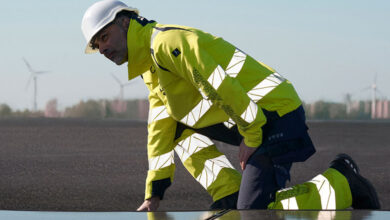Skilling future workforces

Research Perspectives on the Future of Work, produced in 2025 for the EU’s Directorate-General for Research and Innovation, calls for a new era of investment in upskilling and reskilling as the foundation of a just labour market transformation.
Amid rapid technological change and environmental imperatives, the European Commission’s latest report on the future of work states that Europe’s success in navigating the twin green and digital transitions hinges on its ability to equip its workforce with the right skills fairly, inclusively, and at scale.–
With significant gaps already visible in sectors ranging from clean energy to artificial intelligence, the report underscores that current training systems are “not keeping pace with the rapidly evolving demands of the economy”.
Published in late March 2025, the report draws on input from EU member states, academia, industry, and civil society. It identifies four central research streams: the green transition and working life, digitalisation, support for vulnerable groups, and reform of public administration. Across all these themes, the challenge of skills development emerges as both a cross-cutting issue and a critical enabler of change.
One of the report’s most compelling findings is the disproportionate impact of the transitions on groups already at risk such as workers in carbon-intensive regions, those with disabilities, informal caregivers, and older employees. “These communities are most likely to be excluded from reskilling opportunities, further entrenching inequalities unless targeted action is taken,” the report says.
In response to this challenge, the report advocates for a culture shift in how training is delivered. It promotes employer-supported, flexible learning paths integrated into work routines, and stronger collaboration between governments, industry, and education providers. Public administration is also called to modernise, with digital skills and talent attraction seen as priorities.
The report asserts that the digital transition brings added urgency. “From the rise of AI to the platform economy, the labour market is undergoing seismic shifts. Without human-centric innovation and robust regulatory frameworks, digitalisation risks exacerbating precarious employment and social fragmentation.”
To ensure a just transition, the report concludes that Europe “must embed inclusivity and foresight into its research, innovation, and employment strategies”. In this vision, skills are “the currency of equity, resilience, and shared prosperity”.





